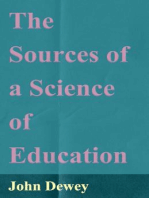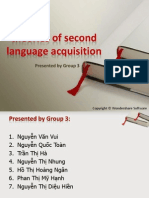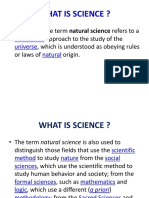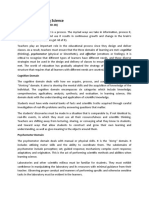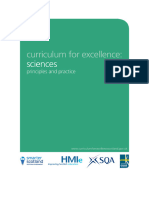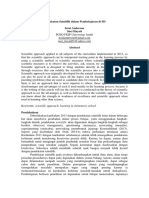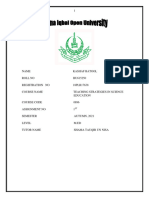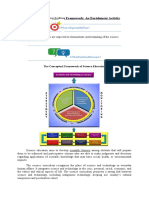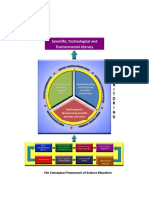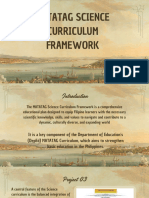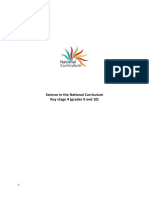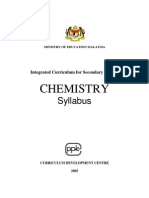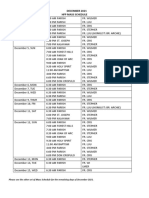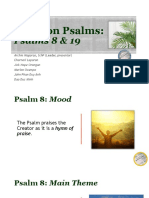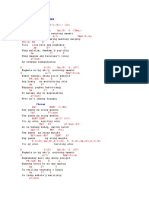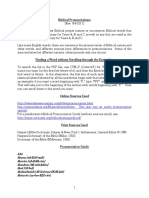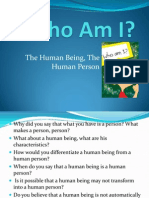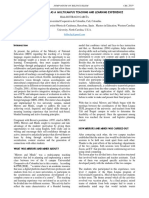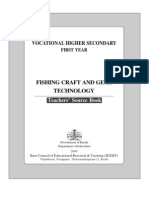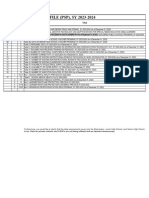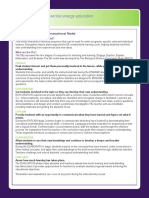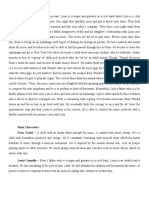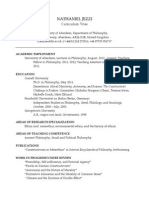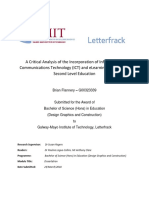Concept Matirx
Concept Matirx
Uploaded by
Archie Dei MagaraoCopyright:
Available Formats
Concept Matirx
Concept Matirx
Uploaded by
Archie Dei MagaraoCopyright
Available Formats
Share this document
Did you find this document useful?
Is this content inappropriate?
Copyright:
Available Formats
Concept Matirx
Concept Matirx
Uploaded by
Archie Dei MagaraoCopyright:
Available Formats
What is Project ESEP?
The Science and Technology Oriented High School Program (ESEP) is the flagship program for the development of Science, Mathematics and Research. It is being implemented in selected 110 public high schools and 6 learning Resource Centers nationwide.
// Science Curriculum Framework
The Science Curriculum Framework articulates standards, core competencies, approaches and underlying principles in Science for secondary schools in the country. The framework is constructed around the development of a functionally literate Filipino who demonstrates understanding of basic Science concepts and processes in an integrative way to solve problems critically, think innovatively and make informed decisions in order to protect the environment conserve resources and sustain quality life. To advance this vision of a functionally literate Filipino in Science, the curriculum is designed and developed around three domains of Science, namely: (1) acquiring scientific knowledge; (2) understanding scientific knowledge; and (3) creating scientific knowledge. Acquiring scientific knowledge is about accessing information, i.e., what information is needed, where information can be located and how information can be gathered. On the other hand, understanding scientific knowledge includes the processing and making meanings out of the information. This domain focuses on demonstration of different facets of understanding: explanation, interpretation, application, perspective, empathy and self-knowledge. Beyond learners being mere consumers of scientific knowledge, they should also be able to use their acquired knowledge to create or produce new knowledge in science. This domain, creating scientific knowledge, challenges learners to transfer their learning in new settings and use this creatively to generate new ideas, view things differently and re-engineer processes. It also involves designing, constructing, planning, producing and inventing products. What needs to be encouraged is the production of new scientific knowledge or products which can contribute to the protection of the environment and sustainable use of resources. Stewardship of nature is a core value that is being strengthened along with other scientific attitudes and values. Aside from values development, the enhancement of scientific thinking skills is embedded in the three domains. The internalization by learners of these skills can be facilitated through the following approaches which can be used individually or in combination: multidisciplinary, interdisciplinary, contextual learning, problem/project/issue-based learning and process-based approaches. Multidisciplinary and interdisciplinary approaches deal with integration within science disciplines and across learning areas. Contextual Learning Approach provides applications of science concepts, processes, principles and laws within the context of real-life situations. Problem/Project/Issue-based learning challenge learners to create and implement measures to address problems and issues in the world around them. Process-based approaches focus on the development of scientific thinking rather than talking about science processes. They include Discovery Approach and Inquiry Approach.
These approaches are largely constructed based on sound educational principles and theories namely: constructivism, social cognition learning model, learning style theory and Gestalt psychology. Constructivism recognizes that learners construct knowledge and meaning from their experiences. Hence, science learning means a change in ideas rather than taking in a new idea as a separate, isolated entity. Social Cognition Learning Model considers learning through interaction with culture, environment and technology. With appropriate help from the science teacher such as by scaffolding learners can often perform tasks which they might be incapable of doing on their own. By experiencing the successful completion of challenging tasks, learners gain confidence and motivation to embark on more complex challenges in science. In Learning Style Theory, learners perceive and process information in different ways. How much they acquire, understand and create scientific knowledge depend on whether their experiences in science are appropriate to their particular style of learning rather than on their being smart. Gestalt Psychology posits that the operational principle of the learners brain is holistic. Therefore, science teachinglearning processes should provide for the balanced development of the left and right brain.
//
Science Curriculum Framework
//
Science Curriculum Guide
//
Science Concept Matrix
You might also like
- Models of The ChurchDocument8 pagesModels of The ChurchArchie Dei Magarao100% (2)
- Unit 1: Teaching Science in Elementary Grades: An OverviewDocument43 pagesUnit 1: Teaching Science in Elementary Grades: An OverviewJenjen Gammad82% (17)
- Principles and Theories of LearningDocument57 pagesPrinciples and Theories of LearningRaffy EsquilloNo ratings yet
- Course Guide: Science Education 204: Teaching Science in The Primary Grades (Biology and Chemistry)Document74 pagesCourse Guide: Science Education 204: Teaching Science in The Primary Grades (Biology and Chemistry)Allysa Marie Silbol100% (3)
- Theories of Second Language AcquisitionDocument69 pagesTheories of Second Language AcquisitionNguyen Vui100% (2)
- SCI-M 3114 Teaching Science in The Elementary GradesDocument13 pagesSCI-M 3114 Teaching Science in The Elementary Gradesjade tagab100% (1)
- Teaching Science in Elementary GradesDocument21 pagesTeaching Science in Elementary GradesMa Paula Jean BrezuelaNo ratings yet
- Sci-201-Teaching Science in Elementary GradesDocument28 pagesSci-201-Teaching Science in Elementary GradesbarredajohnpatrickNo ratings yet
- Sains - KBSM - Additional Science Form 4Document14 pagesSains - KBSM - Additional Science Form 4Sekolah Portal79% (14)
- Spec 1 Modules 1Document10 pagesSpec 1 Modules 1Ann NecdoteNo ratings yet
- Science Reporting - G-7Document19 pagesScience Reporting - G-7KENN JOSHUA AQUINONo ratings yet
- Lesson 1: SC - Sci 1 - Teaching Science in The Elementary GradesDocument44 pagesLesson 1: SC - Sci 1 - Teaching Science in The Elementary GradesAnika Gabrielle SeNo ratings yet
- What Is Science ?: Science Naturalistic Universe NaturalDocument16 pagesWhat Is Science ?: Science Naturalistic Universe NaturalItsna Rona Wahyu AstutiNo ratings yet
- Elementary ScienceDocument28 pagesElementary ScienceCilena DomenicinaNo ratings yet
- EDSCI1 W5 LessonsDocument4 pagesEDSCI1 W5 LessonssophiamaeesposoNo ratings yet
- Module-1 (Science)Document9 pagesModule-1 (Science)Jessa SumagaysayNo ratings yet
- Module Intro Lesson 1 The Science Framework in K To 12Document13 pagesModule Intro Lesson 1 The Science Framework in K To 12Jennyvie CabayaNo ratings yet
- Science EducationDocument7 pagesScience EducationRyan Ceazar AguilaNo ratings yet
- Besbio 3Document24 pagesBesbio 3Geraldine PalaciosNo ratings yet
- K To 12 Basic Education Curriculum: Luardo Ruel Jr. F. 2A1Document23 pagesK To 12 Basic Education Curriculum: Luardo Ruel Jr. F. 2A1Cilena DomenicinaNo ratings yet
- Module Introduction: Teaching Science in The Elementary Grades: An OverviewDocument8 pagesModule Introduction: Teaching Science in The Elementary Grades: An OverviewJervyn GuiananNo ratings yet
- Modulsce3106 EnglishDocument147 pagesModulsce3106 English凝嫣No ratings yet
- Domains of Learning ScienceDocument3 pagesDomains of Learning ScienceAngel Mae H. SolaminNo ratings yet
- Chapter 5 Science LiteracyDocument11 pagesChapter 5 Science LiteracyJulius MacaballugNo ratings yet
- Sciences PPDocument7 pagesSciences PPosra8242No ratings yet
- Exam 1 Week 3Document4 pagesExam 1 Week 3Darlhen LigaligNo ratings yet
- Lesson 1 The Science Framework in K To 12Document10 pagesLesson 1 The Science Framework in K To 12bpsb4ddzctNo ratings yet
- EEd 4-Lesson 1Document10 pagesEEd 4-Lesson 1Mark Edrill ViñasNo ratings yet
- Elem-9 ReviewerDocument5 pagesElem-9 ReviewerCharisse DeirdreNo ratings yet
- Teaching Science in Elementary Grade ModuleDocument20 pagesTeaching Science in Elementary Grade ModuleSittienor GugoNo ratings yet
- Spstem Science3-10 V2Document82 pagesSpstem Science3-10 V2stephaniemae.lanzaderasNo ratings yet
- Permainan Sederhana Kakiku Jadi GawangDocument8 pagesPermainan Sederhana Kakiku Jadi GawangHasbi Yasfi1103No ratings yet
- Best Practice in Elementary ScienceDocument5 pagesBest Practice in Elementary ScienceJhelai OconNo ratings yet
- Science DPT Description - 2015-2016Document1 pageScience DPT Description - 2015-2016Melba CuervoNo ratings yet
- 0696 1st AssignmentDocument35 pages0696 1st AssignmentAsad DogarNo ratings yet
- 8609 - 8614 Assignment AiouDocument7 pages8609 - 8614 Assignment AiouSami Uddin ShinwariNo ratings yet
- The Science Curriculum Framework: An Enrichment Activity: #What'Sexpectedofyou?Document6 pagesThe Science Curriculum Framework: An Enrichment Activity: #What'Sexpectedofyou?Justine Jerk BadanaNo ratings yet
- Local Media5766598185496389114Document7 pagesLocal Media5766598185496389114Zoey LedesmaNo ratings yet
- LESSON 1 To 3 SCIENCEDocument51 pagesLESSON 1 To 3 SCIENCECasey Dela FuenteNo ratings yet
- Local Media8948593105965529188Document3 pagesLocal Media8948593105965529188DAVE SHERWIN REYESNo ratings yet
- Matatag-science-curriculum-framework-1Document13 pagesMatatag-science-curriculum-framework-1brix.staanaNo ratings yet
- Week 7 Group 8 Section 4Document3 pagesWeek 7 Group 8 Section 4Chareynel Ayuban RadañaNo ratings yet
- Elementary Science Curriculum (Physics, Earth and Space Science)Document5 pagesElementary Science Curriculum (Physics, Earth and Space Science)SHARWIN BORDARAISNo ratings yet
- Sains - KBSM - Physics Form 5Document13 pagesSains - KBSM - Physics Form 5Sekolah Portal100% (9)
- Enhancedscience - Grade1 2 4 Sy 2024 25Document31 pagesEnhancedscience - Grade1 2 4 Sy 2024 25Milds MildsNo ratings yet
- Igcse Science Syllabi (Chemistry, Physics) - Third Term GridDocument41 pagesIgcse Science Syllabi (Chemistry, Physics) - Third Term GridJomon ThomasNo ratings yet
- Thesis Chapter 1Document10 pagesThesis Chapter 1Maria Camille Villanueva SantiagoNo ratings yet
- Bab Ii Pembahasan A. History of Scientific Approach 1. What Is Scientific ApproachDocument10 pagesBab Ii Pembahasan A. History of Scientific Approach 1. What Is Scientific ApproachSulastriNo ratings yet
- Guiding Principles For Effective Science and Technology/Engineering EducationDocument7 pagesGuiding Principles For Effective Science and Technology/Engineering EducationGellirose S. BantayanNo ratings yet
- Syllabus Physics 2010 KPMDocument5 pagesSyllabus Physics 2010 KPMnickphysics4927No ratings yet
- Sains - KBSM - Chemistry Form 4Document11 pagesSains - KBSM - Chemistry Form 4Sekolah Portal94% (16)
- Teaching Science ModuleDocument22 pagesTeaching Science ModuleHassel AbayonNo ratings yet
- EED 102 Module 1Document13 pagesEED 102 Module 1Hepshebah De Dios SantuyoNo ratings yet
- Concept Based Learning - Final Essay-1Document45 pagesConcept Based Learning - Final Essay-1RP17 CE21No ratings yet
- ScienceDocument38 pagesScienceapi-272545554No ratings yet
- Module 2 M. GonzalesDocument3 pagesModule 2 M. GonzalesElton John RestonNo ratings yet
- The Project Approach in Early Years Provision: A practical guide to promoting children's creativity and critical thinking through project workFrom EverandThe Project Approach in Early Years Provision: A practical guide to promoting children's creativity and critical thinking through project workRating: 5 out of 5 stars5/5 (2)
- Uncovering Student Ideas in Science, Volume 4: 25 New Formative Assessment ProbesFrom EverandUncovering Student Ideas in Science, Volume 4: 25 New Formative Assessment ProbesNo ratings yet
- Thinking as Researchers Innovative Research Methodology Content and MethodsFrom EverandThinking as Researchers Innovative Research Methodology Content and MethodsNo ratings yet
- Altar Serving SeminarDocument9 pagesAltar Serving SeminarArchie Dei MagaraoNo ratings yet
- December Mass ScheduleDocument1 pageDecember Mass ScheduleArchie Dei MagaraoNo ratings yet
- BibliographyDocument3 pagesBibliographyArchie Dei MagaraoNo ratings yet
- ALAY SA DIYOS Lyrics OnlyDocument2 pagesALAY SA DIYOS Lyrics OnlyArchie Dei MagaraoNo ratings yet
- The Goal of Man: To Give Glory To God, To Know Him and To Love HimDocument13 pagesThe Goal of Man: To Give Glory To God, To Know Him and To Love HimArchie Dei MagaraoNo ratings yet
- Citations and Bibliography StylesDocument6 pagesCitations and Bibliography StylesArchie Dei MagaraoNo ratings yet
- Altar Serving SeminarDocument9 pagesAltar Serving SeminarArchie Dei MagaraoNo ratings yet
- Bible Quiz QuestionsDocument2 pagesBible Quiz QuestionsArchie Dei MagaraoNo ratings yet
- Creation PsalmsDocument7 pagesCreation PsalmsArchie Dei MagaraoNo ratings yet
- LST Academic Calendar 2019-2020Document7 pagesLST Academic Calendar 2019-2020Archie Dei MagaraoNo ratings yet
- 25 Years of Piarist Life Song LyricsDocument1 page25 Years of Piarist Life Song LyricsArchie Dei MagaraoNo ratings yet
- Inspirational SongDocument16 pagesInspirational SongArchie Dei MagaraoNo ratings yet
- Introduction To The Holy Rosary: Wharton Catholic ClubDocument29 pagesIntroduction To The Holy Rosary: Wharton Catholic ClubArchie Dei Magarao100% (1)
- SVPS HymnDocument1 pageSVPS HymnArchie Dei MagaraoNo ratings yet
- Biblical Pronunciations GuideDocument14 pagesBiblical Pronunciations GuideArchie Dei Magarao100% (2)
- The Human Person and OthersDocument16 pagesThe Human Person and OthersArchie Dei MagaraoNo ratings yet
- Introduction To Philosophy: "Know Thyself."Document24 pagesIntroduction To Philosophy: "Know Thyself."Archie Dei MagaraoNo ratings yet
- Life and Dignity of The Human PersonDocument2 pagesLife and Dignity of The Human PersonArchie Dei MagaraoNo ratings yet
- Attacks On Traditional MetaphysicsDocument9 pagesAttacks On Traditional MetaphysicsArchie Dei MagaraoNo ratings yet
- RPH SC Form 2Document50 pagesRPH SC Form 2lccjane8504No ratings yet
- Physical Literacy Concept PaperDocument71 pagesPhysical Literacy Concept Paperrce.ta453407No ratings yet
- The Mirror Class As A Multicampus ExperienceDocument3 pagesThe Mirror Class As A Multicampus ExperiencehildaNo ratings yet
- Fishing Craft-IDocument88 pagesFishing Craft-IShekh SoinNo ratings yet
- Characteristics of The Constructivists ClassroomDocument12 pagesCharacteristics of The Constructivists ClassroomSaneka Setram0% (1)
- Assessing IOT Projects in University Education - A Framework For Problem-Based LearningDocument7 pagesAssessing IOT Projects in University Education - A Framework For Problem-Based LearningAnvit NegiNo ratings yet
- MUSIC 7 Q3 W1D1 MoroIslamic Vocal MusicDocument2 pagesMUSIC 7 Q3 W1D1 MoroIslamic Vocal MusicAires Ichon100% (1)
- Biggiero, L. (2018) Providing Sound Theoretical Roots To Sustainability Science - Systems Science and (Second-Order) CyberneticsDocument14 pagesBiggiero, L. (2018) Providing Sound Theoretical Roots To Sustainability Science - Systems Science and (Second-Order) CyberneticsVerónica IbarrolaNo ratings yet
- Research Into PracticeDocument8 pagesResearch Into Practiceapi-301536744No ratings yet
- English 1-10Document32 pagesEnglish 1-10AbigailBarrionGutierrezNo ratings yet
- Constructivist TheoryDocument3 pagesConstructivist Theoryapi-550356295No ratings yet
- SUMMARY REPORT Inquiry Based LearningDocument17 pagesSUMMARY REPORT Inquiry Based LearningPaul Niño TabigneNo ratings yet
- EDU402 Grand Quiz Help by Amir Noor Khan ChannarDocument57 pagesEDU402 Grand Quiz Help by Amir Noor Khan ChannarshumailaNo ratings yet
- PSP Sy 2023 2024Document23 pagesPSP Sy 2023 2024Wan SawaNo ratings yet
- Wells and Ball Li HeDocument21 pagesWells and Ball Li HePedroDelaCruzNo ratings yet
- Chapter 4 CognitiveDocument29 pagesChapter 4 Cognitive123prayerNo ratings yet
- 5e Constructivist ModelDocument1 page5e Constructivist Modelapi-325078088No ratings yet
- SBM Tool-Div Field TA TeamDocument12 pagesSBM Tool-Div Field TA TeamGeoffrey Tolentino-UnidaNo ratings yet
- Professional Education - 175 ItemsDocument80 pagesProfessional Education - 175 ItemsSucceed Review100% (2)
- Assignment 1 RhythmDocument15 pagesAssignment 1 RhythmKannha AggarwalNo ratings yet
- Differentiation and Learning TheoriesDocument4 pagesDifferentiation and Learning Theorieschrismason1No ratings yet
- The Development of Metacognitive Skills Among First Year Science StudentsDocument12 pagesThe Development of Metacognitive Skills Among First Year Science StudentsnasirNo ratings yet
- Term PaperDocument50 pagesTerm PaperRonel Sayaboc Asuncion100% (2)
- 5 Pedagogical Approaches in TeachingDocument2 pages5 Pedagogical Approaches in Teachingmary katrine belino80% (10)
- Movie Analysis - August RushDocument11 pagesMovie Analysis - August Rushlorevi nigioNo ratings yet
- Jezzi CV May 2015Document3 pagesJezzi CV May 2015Nathaniel JezziNo ratings yet
- Flannery-Brian-G00323339-Dissertation PaperDocument29 pagesFlannery-Brian-G00323339-Dissertation Paperapi-381307435No ratings yet
- Classroom RulesDocument6 pagesClassroom RulesIAN CLEO B.TIAPENo ratings yet





